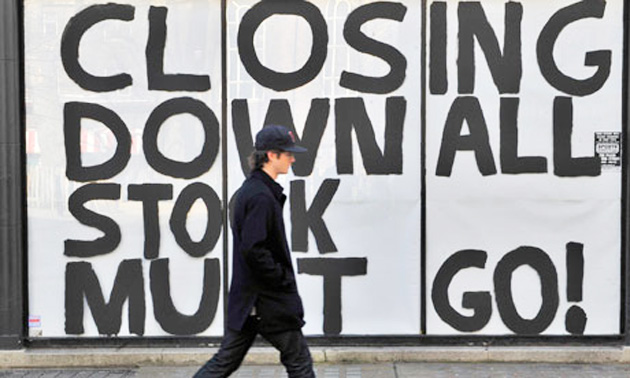Reflections on the UK General Election
Britain has become a society where economic growth is king. And this is true at a European level as well.
15 MAY 2015 · 10:23 CET

I must be one of the few people who had been predicting for several weeks before the UK General Election that the Conservative Party would have a majority in the new parliament - you can ask my friends if you don't believe me! I don’t think that I had any special revelation from God in order to make this prediction. I simply observed over the past 30 years what is most important to English people then they vote at a General Election.
There are many issues which came up in the election campaign; health, education, welfare benefits, poverty, public services, and so on. But there is one issue which dominates the majority of English people’s hearts and minds when they come to put their cross on the ballot paper: the economy. They ask themselves, Which party is most likely to give me the best standard of living for the next 5 years?
On this occasion it seems that the Conservatives successfully convinced enough voters that they were on the right track with the economic recovery: although the last 5 years had been tough, Britain is doing much better than most of its neighbours, and let’s keep on the same course. On the other hand, the Labour Party failed to reassure the electorate that the British economy was safe in its hands.
It seems that the motivations of the Scots were not so very different. For, aside from the complex issues of independence, devolution and nationalism, they voted overwhelmingly for the Scottish National Party, the one party which - like Syriza in Greece - campaigned on a platform of ending austerity.
Look back at William Hague at the 2001 General Election: as leader of the Conservative Party, he majored his campaign on the issues of Europe and the pound. British people feel strongly about these matters - but not sufficiently strongly to elect him. His party was crushed at the polls by Tony Blair, whom the British electorate deemed to be a better bet for future prosperity.
Likewise, at the last General Election in 2010 the Labour Party was bundled out of office after 13 years in power because they were held responsible for failing to deal adequately with the economic crisis which had come upon the country.
Britain has become a society where economic growth is king. And this is true at a European level as well.
The founding fathers of the European Union back in the 1950s, many of whom where committed Christians, had ideals of peace, cooperation, fellowship and harmony of nations. In 1972 Commissioner Sicco Mansholt warned against the illusion of untrammelled economic growth, and proposed that Gross National Happiness should replace Gross National Product as a measure of progress. Nowadays the principal objectives of the European Union are jobs, economic growth and competitiveness: the Union has been sacrificed on the idol of economic growth.
What about you who are reading this? What was your motivation for voting for a particular party at the last General Election in your country? And on what basis will you cast your vote at the next election? Will you go along with the majority and choose the party that you think will give you the best standard of living? Is this God’s priority for his world today? Or are there more important issues?
Michael Gowen woked for over 25 years for the European Commission in Brussels, in energy conservation, agricultural trade and latterly in getting emergency humanitarian aid to countries in crisis in Asia, Latin America and the central part of Africa.
Published in: Evangelical Focus - Features - Reflections on the UK General Election
